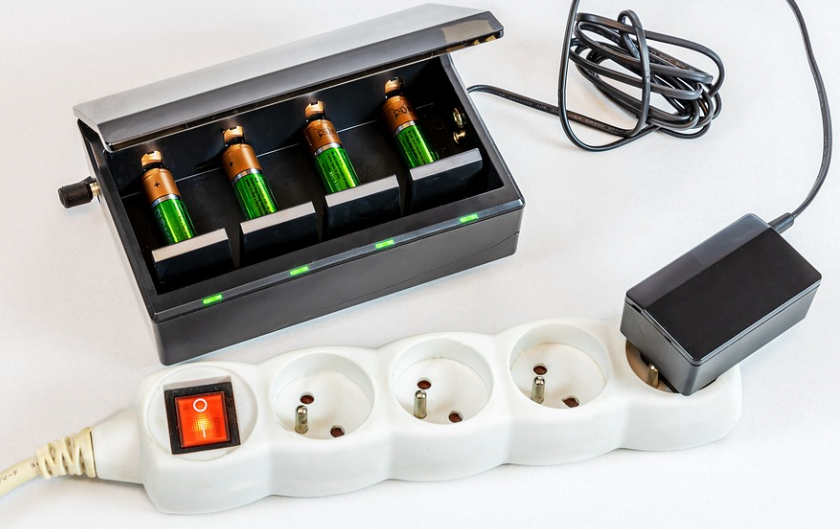Released on Oct. 28, 2022
UPS stands for Uninterruptible Power Supply and can be described as an electricaldevice device that provides emergency powerto a load in the event of a mains power failure.
In other words, have you ever experienced using a desktop computer that goes out in the energy building?
In this case, keeping it on, the machine thus allows you to save your work to avoid losing it.
A power supply device that provides this emergency power is therefore called a UPS.
Unlike a standby generator or any other emergency power supply that needs to be switched on manually or automatically, the UPS functions differently when the power system fails. The UPS provides immediate protection against interruptions to the input power by supplying the energy stored in its batteries to the computer. It is a form of continuous power supply system with a relatively short battery run time, capable of providing a few minutes of power. However, this time limit is sufficient to save work and properly shut down the protected device.

UPS-protected devices
The UPS is commonly used to protect many hardware devices, such as
- Computers
- TVs
- game consoles
- Security systems
- Mobile devices
- Wireless network devices, such as routers
- Data centres
- Telecom equipment
- Servers
A lithium-ion standby UPS is a type of uninterruptible power supply equipment that uses lithium-ion battery technology as its energy storage system. For many years, lead-acid battery technology has had a major impact on the mass production of UPS technology. Soon, however, lithium-ion batteries will completely replace lead-acid batteries in UPS applications.
It is well known thatperformance many technologyexperts are critical of valve regulated lead-acid batteries for UPSsystems.Perhaps this is the reason why UPS systems have had limited opportunities for application over the years. Lithium-ion batteries are used in UPS systems; however, many benefits tend to emerge.
Lithium-iontechnology offers a number of advantages to UPS systems, making theirapplications useful to anyuser.Lithium-ion batteries in UPSapplications have the following advantages over valve-regulated lead-acid batteries.
This is evident in the fact that lithium is the lightest element on the periodic table. This makes the metal inside this lithium battery lighter than other battery technologies. This ultimately makes lithium-ion UPSs easy to transport, store or install. In this case, the use of space is effectively maximised.
The fact that lithium batteries take up less space in a UPS system than lead acid batteries also indicates that less time is spent on cooling requirements.
Lithium batteries provide the highest power because they have the highest energy density of all other battery technologies. Compared to the lead-acid based batteries currently stored in the UPS production market, UPS lithium-ion batteries provide more energy and therefore have a longer emergency time.
Lithium-ion batteries can withstand a wider temperature range than valve regulated lead-acid VRLA batteries. At an average room temperature of 25 degrees Celsius, an increase of 10 degrees Celsius will typically reduce most common VRLA batteries. Lithium batteries tend to be less sensitive to temperature instability. They can also withstand high ranges with little or no effect on their battery life. 4.
Batteries manufactured for UPS systems should be designed to provide the maximum experience before they need to be replaced. Long-lasting batteries such as lithium-ion batteries can significantly reduce the maintenance costs of a UPS. Lithium-ion batteries manufactured for UPS applications are expected to have a life expectancy of approximately ten years, which is higher than that of VRLA batteries.
This BMS provides the opportunity to monitor the battery runtime and its operating conditions. While VRLA batteries use outdated technology and their accuracy cannot be trusted, lithium-ion batteries allow you to properly monitor the life expectancy of your UPS.
However, many lithium-ion may have many advantages over their lead-acid predecessors; they are not yet widely accepted for UPS applications. Here are a few reasons why.
Lithium-ion batteries may be durable and therefore cost less in terms of maintenance, but they come with an expensive price tag.
Lithium-ion batteries are seen as a safety hazard due to reports of dangerous failures. Indeed, lithium-ion batteries contain more active chemicals and therefore give off a scary vibe.
Users may be reluctant to abandon actual and tested battery technology in favour of a new brand type that seems costly to purchase and has fewer recommendations.
A good UPS is essential to protect your electrical equipment from the damage that can be caused by a sudden power failure. To ensure that you purchase a properly functioning lithium-ion battery UPS, you need to consider the following factors.
A good standard specification warranty for the UPS and batteries supplied should last approximately 2-3 years. In this way you can tell if the manufacturer is worth the investment. Extended warranties are even better, as they also tend to offer battery replacements.
A good quality lithium-ion battery UPS should be able to provide a long backup runtime before the unit is shut down. This allows the user to save files and shut down the unit properly.
One needs to consider the amount of power required to drive their equipment and obtain a suitable Li-Ion UPS that can accommodate such a quantity.
A quality lithium-ion battery back-up UPS system can be expensive to purchase, but maintenance costs are negligible.
The life expectancy of an ordinary UPS may depend on a number of factors, such as the conditions in which it is used. However, it is estimated that approximately 3-5 years should be the appropriate duration for any UPS.
Navigation
Mob: +86 186 6629 0033
Tel: +86 0769 85544410
Fax: +86 0769 85544410
E-mail: info05@zwaynenergy.com
WhatsApp: +86 137 1409 6556
Wechat: +86 186 6629 0033
Office: 16th Floor, Yunhua building, shajing Town, Shenzhen, PRC
Add: Room 101, Building 1, No. 18 Hu Nan Road, Changping Town, Dongguan City, Guangdong Province
Follow Us